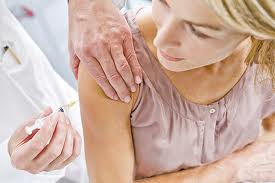Meningitis Disease Prevention
 Meningococcal meningitis cases peak in winter months; help protect your children by getting them vaccinated today
Meningococcal meningitis cases peak in winter months; help protect your children by getting them vaccinated today
(ARA) – School nurses are urging parents to vaccinate their preteens and teens against meningococcal disease, a rare but potentially life-threatening bacterial infection that can cause meningitis and take a child’s life in just a single day. Cases of meningococcal disease begin to peak during the late-winter and early-spring months, so now is a perfect time to be sure children have been vaccinated.
The Centers for Disease Control and Prevention (CDC) recommends that preteens and teens get vaccinated beginning at age 11 with a booster dose by 18 years of age. Despite this recommendation, more than a third of teens 13-17 years of age in this country have not been vaccinated against meningitis, leaving far too many children unprotected.
“Parents may be unaware about the importance of meningococcal vaccination, and that public health officials now recommend a booster dose by 18 years of age,” said Linda Davis-Alldritt, MA, BSN, RN, FNASN, FASHA, and President of the National Association of School Nurses (NASN). “School nurses nationwide have joined with families affected by meningitis and public health officials to educate communities about the dangers of meningitis and the need for vaccination.”
Gaitley Batton knows all too well the dangers of this disease – she contracted meningitis on New Year’s Day as a child. Gaitley was fortunate to survive, but not without consequence – she had to have her leg amputated below the knee due to tissue damage caused by the disease.
Gaitley and her mother Heidi Moody have joined the NASN’s Voices of Meningitis campaign, in collaboration with Sanofi Pasteur, to raise awareness about the disease and the importance of vaccination for preteens and teens.
“I continue to live with the lasting effects of this disease every day,” said Batton. “No one should have to go through what my family and I did, which is why I’m sharing my story. Vaccination is the best way to help protect preteens and teens from this disease.”
About 10 percent of the 1000 to 1200 Americans who get meningococcal meningitis each year will die. Like Gaitley, many who survive this disease – one in five – are left with serious medical problems, including amputation of limbs, brain damage, deafness, and organ damage.
Adolescents are thought to be at increased risk for meningitis because of common, everyday activities they engage in with other teens, like sharing drinking glasses and kissing, since meningococcal bacteria are spread from person to person through close contact. Not getting enough sleep can also increase their risk of getting the disease. A national telephone survey found that nearly 82 percent of teens engage in many of these activities. The result? Teens put themselves at risk for getting meningitis every day, making vaccination all the more important.
“Winter break is a great time to get preteens and teens vaccinated, and parents need to know that any health-care visit is an opportunity to discuss vaccination,” said Moody. “Parents should make it their priority to schedule a vaccination appointment. Don’t wait, do it today.”